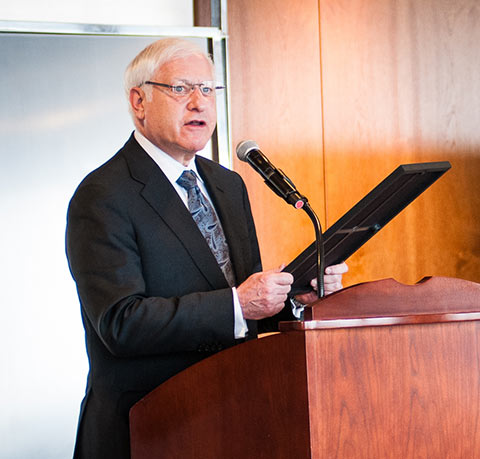
I first met Marc J Lane five years ago. We were both at SOCAP. Marc is an attorney, best known for his remarkable work in creating the L3C law in the State of Illinois. This law is an important mark on the road to sustainability and sustainable investment. Let me define what L3C law does for the development of social investment.
L3C stands for a low-profit, limited company, with a hybrid type structure that comprises both non-profit and for-profit attributes. It is designed to attract private investments and philanthropic capital in ventures designed to provide socially beneficial objectives. Even though the L3C has an explicit primary charitable mission and a secondary profit concern, it is free to distribute the profits to its members just like the standard limited liability companies. The L3C has also the same limited liability protection for its members, the same management structure, tax and ownership flexibility while keeping the advantages associated to a non-profit organisation. The biggest advantage of a L3C is to have many funding options from foundations and their investment related programmes.
The importance of the L3C law is that it is an effective tool to access investment funds to implement social and environmental solutions to the present climate crisis we are facing.
Although L3Cs can operate in all 50 US states, incorporation is currently allowed in certain states only: Illinois, Kansas, Louisiana, Maine, Michigan, Missouri, North Dakota, Rhode Island, Utah, Vermont, Wyoming and the federal jurisdictions of the Crow Indian Nation of Montana and the Oglala Sioux Tribe.
Marc has written several books about L3C and the new ways to invest. His latest, “Mission-Driven Venture: Business Solutions to the World’s Most Vexing Social Problems was published in 2015.
In recent years, we have seen private capital show increased interest to invest in social and environmental enterprises. Mission-driven companies, from new small businesses to larger companies, with a strong CSR strategy and value-based business philosophies started to become attractive investment for investors.
In the US, where are large foundations, the L3C is an important law to help unlock funds. To reach net zero by 2050 involves both financial and environmental regulation of carbon-intensive sectors. L3C plays a part in the mix, by providing the legal framework that can be attractive to obtain investment.
The pandemic exposed the best and the worse of societies. Inequality marked the areas where the largest numbers of deaths have occurred. Many say that the pandemic may also have created an opportunity for change. The green economy is certainly the road to create new jobs and help reduce poverty. It can also help transform the places people live.
As I read reports of how ordinary citizens organised themselves to feed and house homeless people, I can’t help noticing that the cooperative spirit is a natural way for society to come together.
The business models for co-ops proved once again their success and resilience even during a pandemic. We do not have a L3C law outside the US, but the cooperative business model is a value-based business model that should be attractive in today’s societal development. There are some 3 million cooperatives and 1 billion members on earth – they could be a driver for change. There are many examples of successful cooperative models around the world today to inspire society to solve the climate crises. The Japanese consumer cooperative and health cooperative HAN groups are important solutions for our today’s problems. The Spanish Mondragon one of the most known co-ownership models of business. It has demonstrated that a value-based business model is the way to social and financial success.
The role of law and legislators is to help create new laws to lead society into the direction of sustainability and social fairness. Sectoral regulations and outdated legislation often put brakes on sustainable development. Sector-minded legislators and lawyers without entrepreneurship and systems-mindedness stall needed changes.
Marc J Lane is a lawyer who has worked to innovate and create some of the changes that can foster the much needed investment in the low carbon economy solutions and social changes.


